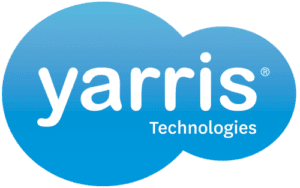What do carpentry and legal operations have in common?
My father was an amateur carpenter but without the modern technology. To drill a hole, he pushed down on a brace and bit with one hand while he twisted with the other. Screwing was laborious with hand screwdrivers. Hand-sawing was slow, and the cut was not dead straight.
I now see our daughters, with less skill, completing projects around their homes using electric drills, screwdrivers, and saws. Their results are better than Dad’s, their cuts are straighter, their screws are flush with the surface, and the process is faster.
It’s the same with law. Creating a bespoke document is satisfying for the creator, and if the drafter is an expert the quality might be outstanding. However, a contract automation system can generate certain types of contracts with better quality and faster than any bespoke effort. A document management system saves time chasing through emails, different storage drives, and paper. A triage system gives the client an immediate legal response at any time of the day or night.
Practicing law in-house today is all about delivering legal services in the way the customer wants them delivered, and some lawyers lack the tools required to do that.
Law is not now a ‘’practice’ in the sense that lawyers have defined that term for centuries. Traditionally, lawyers were well trained in the law, diligent, ethical, and conscious of their professional standards and courtesies. They expected their clients to accept the lawyers’ ways of working and their time-tested conventions. They saw themselves as an elite breed of ‘professionals’, advising their clients who were not ‘professionals’ unless of course, they happened to be doctors, engineers, clergy or military officers.
Today, business clients want timely commercial advice and business outcomes, not just legal recommendations. They want to avoid risks, to make sure their organizations comply with regulatory requirements, to enter contractual obligations quickly without fuss, and for their lawyers to help them avoid problems before they arise. Business leaders want their lawyers to give them the data to measure the performance of the lawyers, and to justify new hires.
This role is very different to that of the traditional lawyer, but many lawyers aren’t trained for their new role, and they often don’t have the necessary skills. Furthermore, many older lawyers simply don’t want to learn new business skills or to use the new tools of the trade. They enjoy using the traditional legal skills rooted in their DNA.
Many lawyers were never taught the skills their corporate colleagues acquired regarding corporate strategy, financial management, data analysis, technology management, and organizational behavior. There is no time available in the law course for general business training because the ‘Priestley 11’ core law subjects, mandatory for admission into practice as a legal practitioner consume the curriculum. A law degree skips many important skill sets required for a successful career in the law today.
How should lawyers cope with these new demands when they are not trained for them?
A common solution is to add a legal operations specialist to the law department. The number of legal operations consultants working in law departments has grown enormously over recent years. A 2021 Thomson Reuters survey found 80% of departments responding now have staff dedicated to the departments’ legal operations function.
The other part of the solution is to use technology for greater productivity. Combining legal operations specialists with technology is the answer to many problems.
For more information about Dazychain please visit www.dazychain.com
Dr Katherine King is the Chief Executive Officer of Yarris Technologies and the Co-founder of Dazychain legal matter management software









